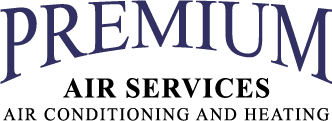
We can all benefit from saving a few bucks where we can. An easy way to do so is by identifying energy inefficiencies around your home. Upgrading your HVAC system or installing a smart thermostat, for example, offers more control over your heating and cooling system, contributing to a more energy-efficient home and more affordable monthly energy bills.
Keep reading to learn more about 4 ways you can make energy-efficient home improvements.
1. Look for Smart Home Products Like a Smart Thermostat
If you still use a round-dial thermostat and control it manually, consider taking a step toward the future by installing a smart, or Wi-Fi, thermostat – which comes with numerous features to assist with energy efficiency.
The functionality homeowners enjoy the most is having the capability to access their smart thermostats from anywhere through their smartphone or other smart device. For instance, when you forget to use your thermostat before leaving for vacation, you can simply use your smartphone and make the adjustments.
Just like a programmable thermostat, a smart thermostat permits you to set up a schedule for your home’s temperature determined by the time of day and day of the week so you’re not cooling or heating an empty house. Smart thermostats also have the ability to understand your temperature preferences over time and automatically make energy-efficient corrections. They even create monthly energy reports that demonstrate how much energy you are using and when so you can make modifications to reduce costs.
If you’re wondering how to get a free smart thermostat, check with your utility company to learn if there are any discounts or free smart thermostats available.
2. Regularly Scheduled Tune-Ups for Your HVAC System
Sadly, lots of homeowners often forget about having their heating and cooling systems maintained. While this might not seem like a problem, inadequate maintenance will sometimes lead to a number of issues, including inefficiency, breakdowns, and a shorter system lifespan.
During an HVAC maintenance service, your technician should inspect your HVAC system, clean important components, and identify minor issues before they lead to bigger, more expensive repair issues. Maintenance can keep HVAC systems working at optimal condition, which means they use less energy to heat and cool your home. This can help with your energy bills, expand the lifespan of HVAC equipment, and lead to fewer repairs.
We suggest two HVAC tune ups every year – one during the spring before summer and one during the fall before the arrival of cold weather.
3. Replacing Your Old, Inefficient HVAC Equipment
Regretfully, like any appliance, HVAC systems can't run forever and eventually need to be replaced. Modern heaters and cooling systems are much more effective than units produced just over a decade ago. Luckily, local HVAC companies like Premium Air Services LLC can handle professional services like furnace installation in Tomball.
Well-maintained furnaces and air conditioners can last approximately 15-20 years. If your system is within that timeframe, it might be a good idea to replace them now to minimize the risk of premature equipment failure that can leave you cold and uncomfortable if it’s a cold winter night. If your equipment is around 15 years old and requires an expensive repair, it’s definitely time to replace the unit. Per the U.S. Department of Energy, installing a new HVAC system can save you between 20-40% on your monthly energy bills, so you’ll recover some of the costs of installing a new system.
A professional heating and cooling technician can help you find the most energy efficient HVAC system for your needs. For the most part, look for HVAC systems that are Energy Star certified, indicating the equipment satisfies strict guidelines established by the U.S. Environmental Protection Agency. LENNOX HVAC systems are often some of the most efficient systems available, featuring both high AFUE and SEER ratings. AFUE is intended for heating systems and illustrates how well they convert fuel to heat. SEER, on the other hand, is used to measure the efficiency of cooling systems.
Get in touch with a reputable HVAC provider like Premium Air Services LLC for air conditioning installation in Tomball.
4. Use High Efficiency Air Filters
The next time you’re looking for new HVAC filters, keep in mind that not all air filters are capable of providing the same results. Specific air filters are far more efficient than others, contributing to lower energy bills and a cleaner home environment.
The performance of HVAC air filters is rated by their Minimum Efficiency Reporting Value, or MERV rating. The MERV scale ranges from 1-20; the higher the number, the more efficient the filters are. It’s worthwhile to note, however, that high-efficiency air filters can in fact impede airflow too much depending on the type of HVAC system you own. It’s beneficial to read the owner’s manual before getting a filter to determine the best option for your system.
